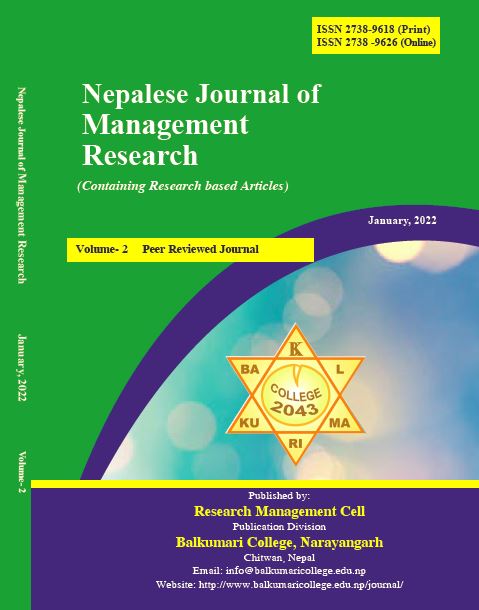Relationship Between Human Resource Management Practices And Employee Commitment
DOI:
https://doi.org/10.3126/njmgtres.v2i1.48265Keywords:
compensation, training and development, career planning, employee participation, performance appraisal, commitmentAbstract
The general objective of the study was to analyze the relationship between human resource management practices and employee commitment in Nepalese commercial banks. Descriptive research design was once used for the study. The study targeted 250 employees in Nepalese commercial banks. Questionnaires had been used as instruments for data collection. Descriptive and inferential information had been used to analyze the data. The study observed that all the human resource management practices studied influences employee commitment. This is evidenced by the findings that employee commitment is positively related with compensation, training and development, career planning, employee participation, and performance appraisal. The study concluded that human resource management practices such as compensation, training and development, career planning, employee participation, and performance appraisal influence employee commitment at Nepalese commercial banks is it affective, normative and continuance commitment in the organization. It is recommended that Nepalese commercial banks should improve on other aspects of human resource management practices such as compensation, and training and development as they had weaker relationship compared to other variables. The research finally endorsed that another study be prepared in other banks on the encounters facing the enactment of human resource management practices intended at motivating employees.
Downloads
Downloads
Published
How to Cite
Issue
Section
License
The journal allows the author to hold the copyright and retain publishing rights without restrictions.

